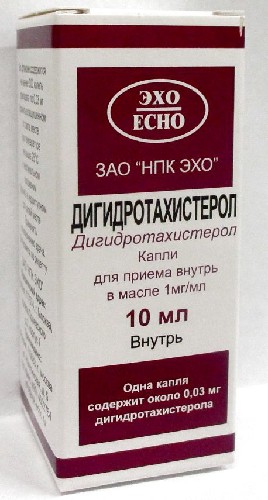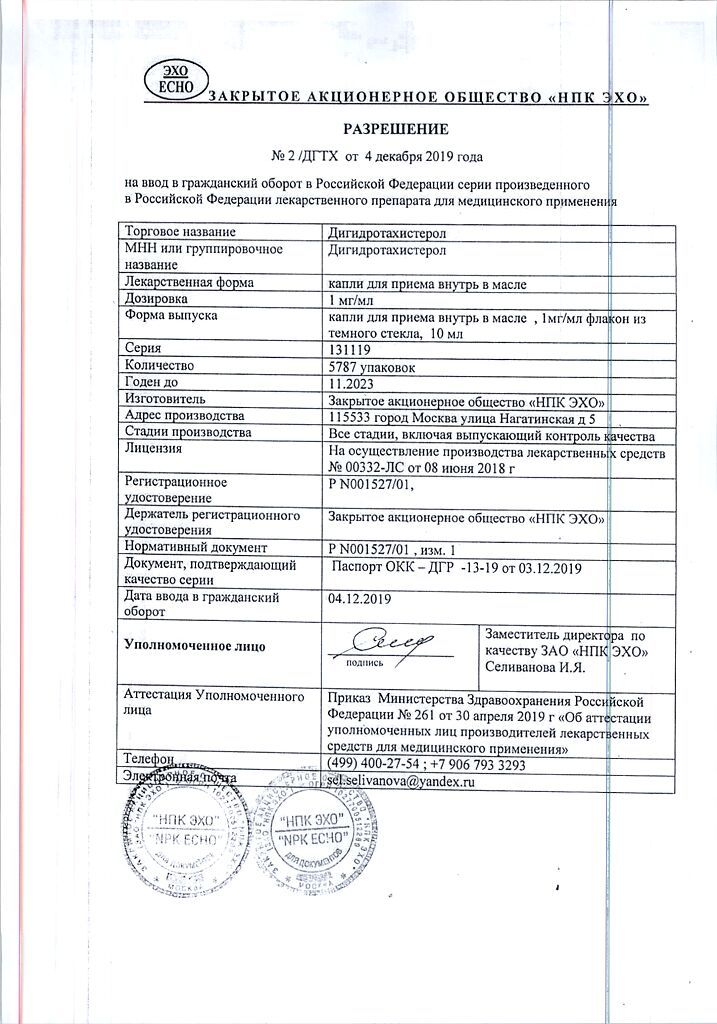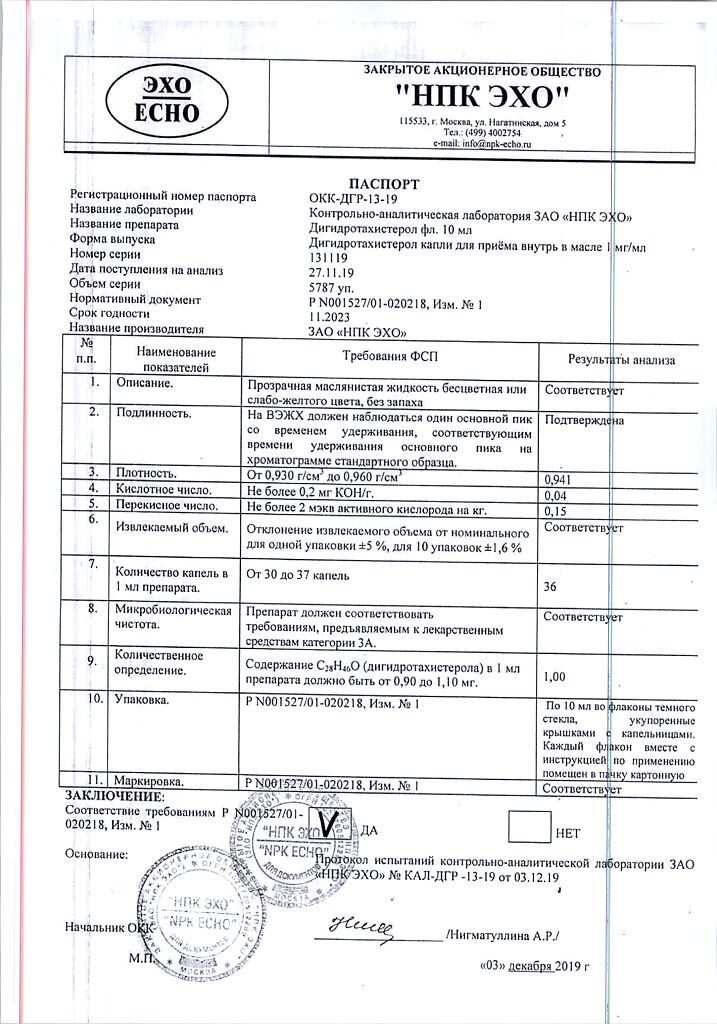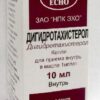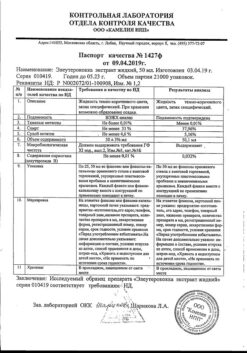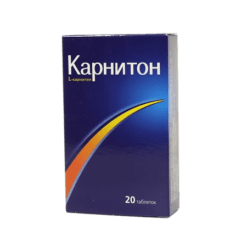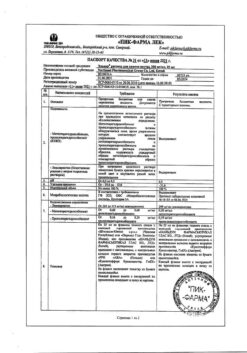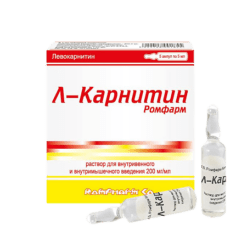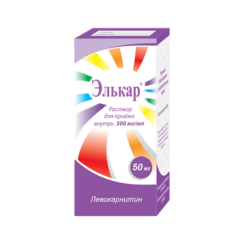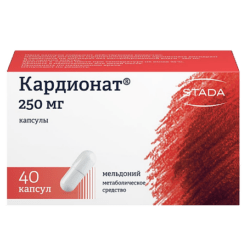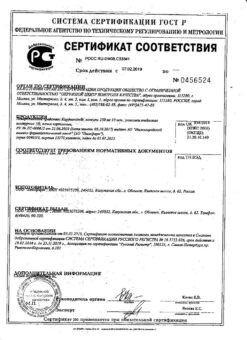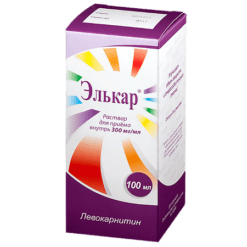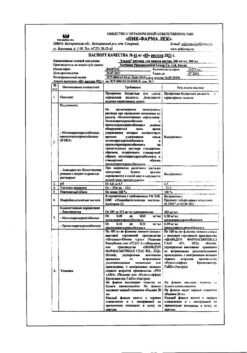No products in the cart.
Dihydrotachysterol, drops 1 mg/ml 10 ml
€13.87 €11.56
Description
Dihydrotachysterol is a metabolic regulator. Regulator of calcium and phosphorus metabolism. Dihydrotachysterol increases absorption of calcium in the intestine, thereby increasing its level in the blood.
The drug also increases excretion of inorganic phosphorus by the kidneys. Dihydrotachisterol can be used for a long time without the development of overdose effects or tolerance.
The action of the drug is faster at the beginning of treatment and less prolonged after the end of the course than that of vitamin D, due to which the risk of accumulation of the drug in the body and development of hypercalcemia is reduced.
Dihydrotachysterol may exhibit toxic effects at a dose of about 25 mg per day, which is expressed by symptoms of hypercalcemia. It does not cause addictive phenomena.
Indications
Indications
Hypoparathyroidism (idiopathic and postoperative), pseudohypoparathyroidism, tetany (muscle cramps caused by hypocalcemia), bone diseases caused by vitamin D deficiency.
Pharmacological effect
Pharmacological effect
Dihydrotachysterol is a drug that regulates metabolic processes. Regulator of calcium and phosphorus metabolism. Dihydrotachysterol increases the absorption of calcium in the intestine, thereby increasing its level in the blood.
The drug also increases the excretion of inorganic phosphorus by the kidneys. Dihydrotachysterol can be used for long periods of time without developing overdose or tolerance effects.
The effect of the drug appears faster at the beginning of treatment and less long after the end of the course than that of vitamin D, thereby reducing the risk of accumulation of the drug in the body and the development of hypercalcemia.
Dihydrotachysterol can be toxic at doses of about 25 mg per day, resulting in symptoms of hypercalcemia. Does not cause addiction.
Active ingredient
Active ingredient
Dihydrotachysterol
Composition
Composition
Active ingredient:
dihydrotachysterol – 1 mg;
Excipients:
refined deodorized sunflower oil or refined deodorized soybean oil up to 1 ml
Contraindications
Contraindications
Hypercalcemia, hypervitaminosis D, hypersensitivity to dihydrotachysterol and other vitamin D preparations.
Side Effects
Side Effects
From the digestive system: anorexia, nausea, vomiting, diarrhea; when used in high doses – biliary dyskinesia.
From the cardiovascular system: palpitations; rarely – heart rhythm disturbances.
Metabolism: thirst, tissue calcification.
From the urinary system: with long-term therapy – impaired renal function.
Other: pale skin, headache.
Interaction
Interaction
When taking dihydrotachysterol simultaneously with vitamin D, as well as with drugs and nutritional supplements containing calcium, hypercalcemia may develop.
When taking dihydrotachysterol simultaneously with thiazide diuretics and rifampicin, hypercalcemia may occur.
Dihydrotachysterol enhances the effect of cardiac glycosides and calcium antagonists. When taking cardiac glycosides or calcium antagonists with dihydrotachysterol, the dose of the latter may be reduced.
Barbiturates (phenobarbital), antiepileptic drugs [phenytoin (diphenin), carbamazepine (finlepsin), primidone (hexamidine)], anion exchange resins (colestyramine, colestipol) and petroleum jelly weaken the pharmacological effect of dihydrotachysterol.
If treatment with thyroxine is carried out simultaneously while taking dihydrotachysterol, then after its withdrawal hypercalcemia may develop.
Storage conditions
Storage conditions
In a place protected from light, at a temperature of 0–15 °C.
Shelf life
Shelf life
2.5 years
Manufacturer
Manufacturer
ECHO NPK, Russia
Additional information
| Shelf life | 2.5 years |
|---|---|
| Conditions of storage | In the dark place at 0-15 °C. |
| Manufacturer | ECHO NPK, Russia |
| Medication form | oral drops |
| Brand | ECHO NPK |
Related products
Buy Dihydrotachysterol, drops 1 mg/ml 10 ml with delivery to USA, UK, Europe and over 120 other countries.

